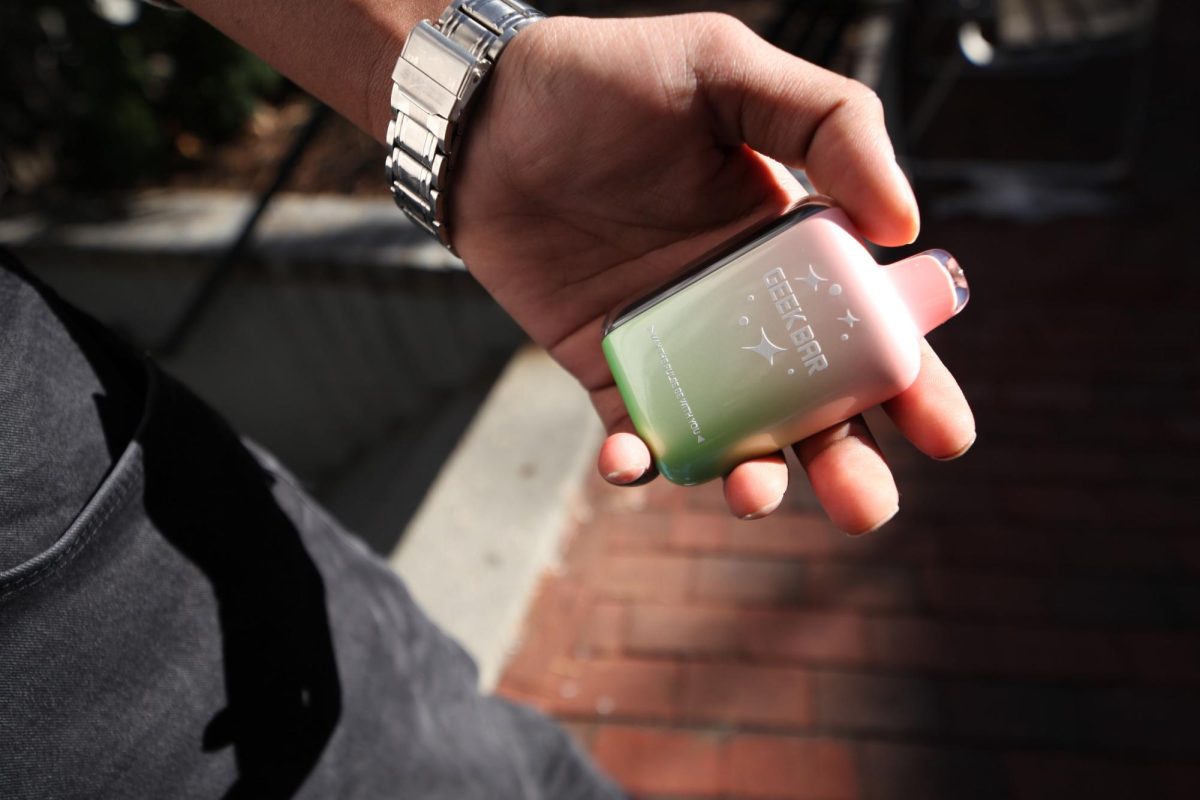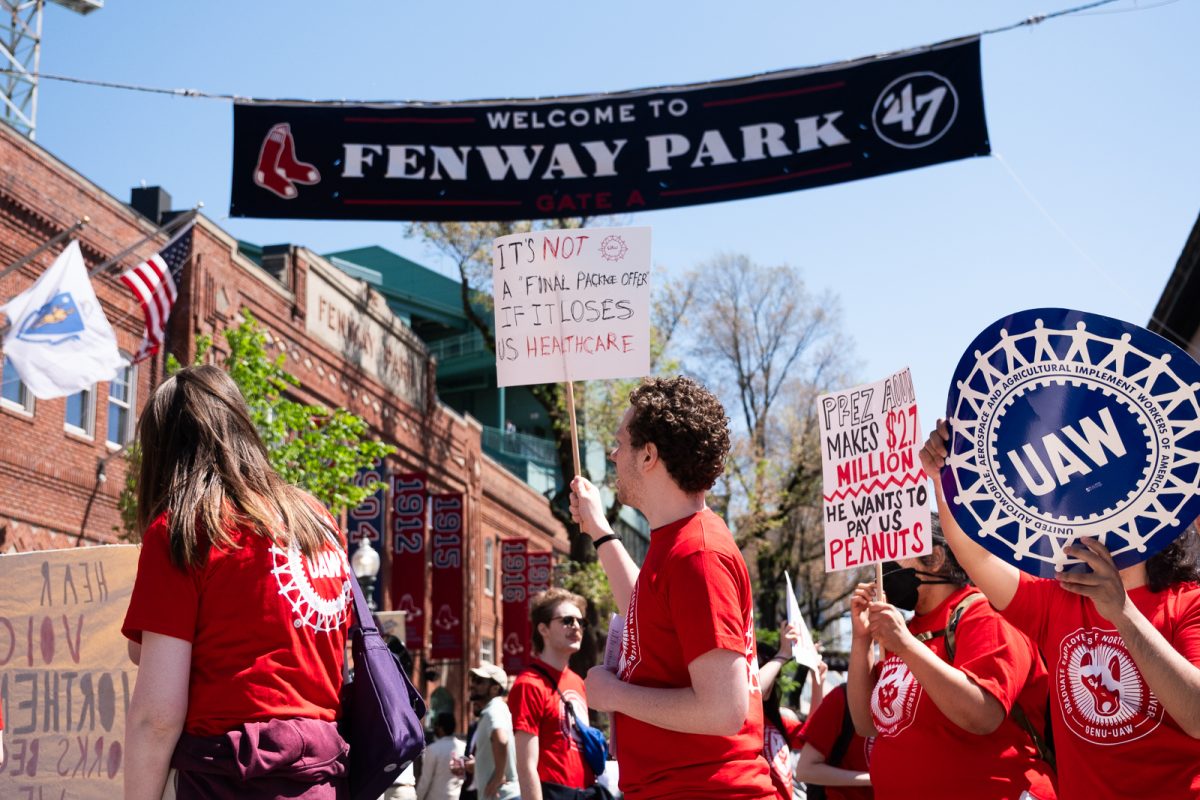
In the last few years, Northeastern has built and renovated countless buildings, as well as allocating money to financial aid and spending money internally.
Senior Vice President for Administration and Finance Larry Mucciolo said the university needs to “expand our physical footprint if and when opportunity knocks.”
Faculty Senate Agenda Committee Chair Robert Lowndes does not dispute the fact that funds have been spent throughout the university. He does, however, disagree with where and what the money is being spent on. Lowndes said that the area of the university that is in the most need of funds is being left in the dark: “It hasn’t gone into the colleges.”
“The education side is getting a little marginalized,” Lowndes said. “[The students] are really coming here to get an education, not for a dorm room.”
Lowndes is looking for immediate results.
“I would be very disappointed if, in the next short while — I’m talking weeks and months — we don’t have a major investment plan approved that commits very strongly to the colleges and the academic sector,” Lowndes said. “There needs to be the investments so the money has got to be made available and the top priority needs to be increasing the size of the professoriate.”
Though Senior Vice President for Administration and Finance Larry Mucciolo believes that the university should allocate more money into building residence halls and academic buildings, Lowndes disagrees.
“[Mucciolo’s] saying this is the way we’re going to do it, and I’m saying, maybe we should question it,” Lowndes said.
Mucciolo, who said that it is a “mistake to invest in only one thing,” said that the university has added “several million dollars to faculty.”
However, referring to the construction of West Campus building F that will begin in Sept. 2004, he said that “if anyone thinks we’re done building dorms, they’ve been asleep.”
At the State of the University Address last Wednesday,Student Govern-
ment Association Sen-
ator Andres Vargas asked Mucciolo to expand on the remark he made in his speech that the university held a $21 million surplus in the budget last year and ended the year with a $6 million deficit.
Mucciolo’s response: “And that’s simply the end of it.”
Mucciolo later said, “What I said during the presentation was responsive, but I did give a very short answer.”
In an e-mail response to Vargas later that day, Mucciolo said that he should be “well aware of the huge financial investment being made in student housing and academic buildings.”
Student Government Association President Michael Romano is aware as well.
“Mucciolo said that our facilities are excellent, and they are, but ask the average student how many full-time faculty they’ve had or how often they haven’t had a seat in an oversize classroom,” Romano said.
The Colleges of Arts and Sciences and Business, in particular, according to Provost Ahmed Abdelal, have had financial trouble in the past year due to their rapid growth, in line with a growing national interest in their programs.
“I am working with both colleges to see how we can provide more adequate sources to support this demand,” Abdelal said. “We have invested this year, in this budget cycle. Arts and Sciences received the largest share from the new funds that were available.”
Chair of the School of Journalism in the College of Arts and Sciences Steve Burgard, however, is not consoled.
“I’m hopeful and confident, there’s reason for confidence that [the money needed to enhance the program] will come through, but on paper what we would like to do, and what we can do as of today, doesn’t add up in the two columns,” Burgard said.
He said that while it is important that the university build classrooms and enhance academic buildings, the need to hire professional staff is his biggest concern.
“I think a decision on capital expenditures is more of a long-term proposition for the university, but serving the needs of students that are already here for courses is an immediate need,” Burgard said. “At some point, it becomes apparent that high quality teaching is in fact the product of the university, so we have to be sure that it’s a good one.”
The Committee on Funding Priorities, made up of administrators, faculty and student leaders, began meeting this week to discuss next year’s budget. The committee, appointed by President Richard Freeland, will work until Thanksgiving to come up with a group recommendation about how funds should be allocated next year. One of the key decisions at the meetings will be between setting aside more money for building or for academics.
Economics Professor Steve Morrison will chair the committee which includes Abdelal, who hopes to “strengthen the faculty ranks,” and Mucciolo, who believes the “physical plant supp-
orts the other two legs of the school,” which include faculty and students.
“It’s hard to say what will happen,” Morrison said. “We’ve only received our charge, so it’s not clear how these alleged or likely competing views will play themselves out.”
Romano, who will sit on the committee, said that he will be “advocating and pushing towards students’ priorities.”
“I think if we’re admitting a higher level of students, then we need to step up and provide a higher caliber of education,” Romano said.
Abdelal, the university’s chief academic advocate, is also in favor of providing the colleges with enough money to hire professors and establish programs, but not at the loss of new buildings.
“None of us is saying that we want one and not the other,” Abdelal said.
However, he said, “I think we need to invest more, proportionately speaking, in academics.”








